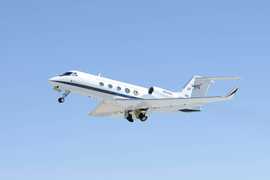
Biodiversity Survey of the Cape
Carbon Cycle & Ecosystems
- 1
- Deployment
2023-10-16 2023-11-26 - 2
- Platforms
- 5
- Data Products
The Campaign
The Biodiversity Survey of the Cape (BioSCape) was a field investigation that examined the distribution and function of biodiversity in ecosystems. It was NASA’s first biodiversity field program to use airborne remote-sensing observations to improve understanding of the drivers and mechanisms of ecological and biodiversity change. BioSCape conducted one deployment from October to November 2023 across the Greater Cape Floristic Region (GCFR) in South Africa. NASA’s Gulfstream III and V aircraft were equipped with remote sensing instruments, including the Airborne Visible InfraRed Imaging Spectrometer - Next Generation (AVIRIS-NG), Portable Remote Imaging Spectrometer (PRISM), Hyperspectral Thermal Emissions Spectrometer (HyTES), and Land Vegetation and Ice Sensor (LVIS). BioSCape was funded by NASA’s Biological Diversity and Ecological Conservation Program, the Republic of South Africa's Department of Science and Innovation (DSI), the National Research Foundation (NRF), and the United Nations Educational, Scientific and Cultural Organization (UNESCO).
N: 30°S
S: 40°S
W: 15°E
E: 30°E
no campaign DOI available
- ORNL DAAC Landing Page for BioSCape
- BioSCape Project Website
- BioSCape Project Website (ESPO)
Additional Notes
Repositories
Events
Filter data products from this campaign by specific platforms, instruments, or formats.


